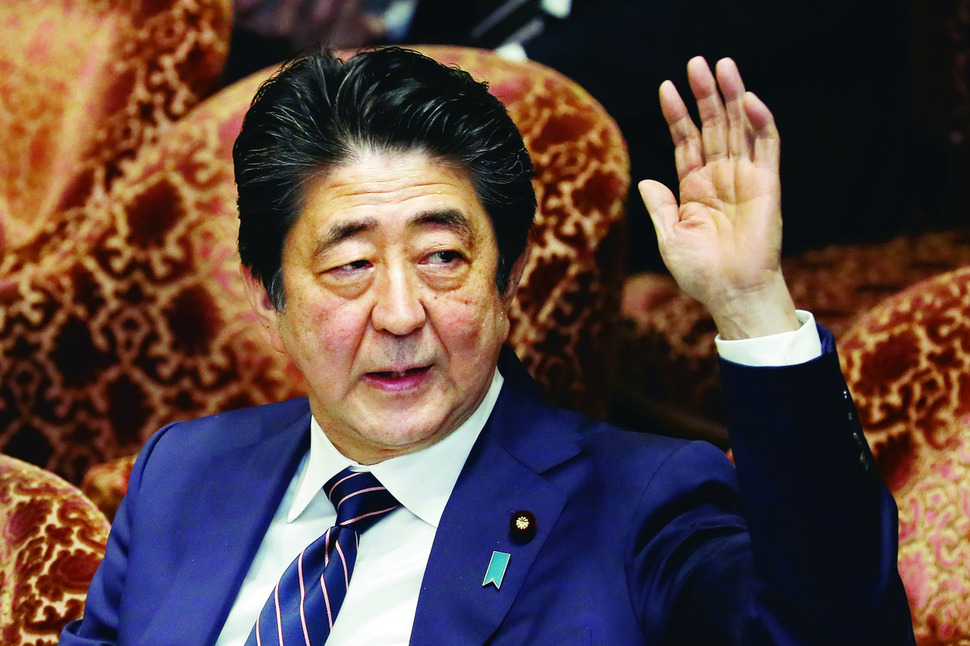 |
|
Japanese Prime Minister Shinzo Abe
|
Tokyo draws up list of around 100 retaliatory measures, Japan’s Jiji Press reports
If the assets of Japanese companies based in South Korea that have been seized by Korean victims of forced labor under Japan’s colonial occupation are liquidated, the Japanese government has reportedly decided to retaliate by imposing tariffs on South Korean exports. The former forced laborers were awarded damages in a ruling by South Korea’s Supreme Court last year. Japan’s Jiji Press reported on Mar. 3 that the Japanese government had finished drawing up a list of concrete retaliatory measures, quoting multiple Japanese government officials. “The Japanese government intends to keep asking South Korea to join deliberations based on their [1965] agreement about the right to make claims as long as possible, but the South Korean government isn’t showing any signs of engagement,” one of the officials reportedly said. According to the wire service, the Japanese government has reportedly come up with about 100 retaliatory measures it could take against South Korea, including punitive sanctions, banning the supply of certain Japanese products and capping visas that are issued. Presuming that the assets in question are actually liquidated and that this causes meaningful damage to Japanese companies, the Japanese government is expected to make its decision in consideration of whether its measures would be in violation of its obligations to the World Trade Organization and the effect that they would have on the Japanese economy. The Japanese government is also reportedly planning to withdraw its proposal for deliberations with the South Korean government and to instead request the appointment of a mediation committee that would include a representative from a third country. The attorneys representing the South Korean plaintiffs approached Mitsubishi Heavy Industries on Jan. 18 and Feb. 25 to ask for deliberations about compensation for damages, but the attorneys were rebuffed both times. On Mar. 4, they announced that they would be taking steps shortly to seize the company’s South Korea-based assets, including trademarks and patents. The apparent reason that the attorneys have not rushed to seize and liquidate these assets is to sincerely give the company as much time as possible to engage in deliberations in order to avoid unnecessary diplomatic friction. But Japan has stuck to its confrontational stance by creating a list of retaliatory measures that it could take in the event that its companies suffer damage. On Jan. 30, the Foreign Affairs Committee of Japan’s Liberal Democratic Party called in Japanese Ambassador to South Korea Yasumasa Nagamine for a meeting, after which it issued demands for Nagamine to be recalled and for a ban to be placed on exports of defense-related materials if the assets are liquidated. Jiji Press reported that, if the Japanese government goes ahead with such retaliatory measures, the two countries’ bilateral relations are bound to deteriorate even further. By Gil Yun-hyung, staff reporter Please direct comments or questions to [english@hani.co.kr]






